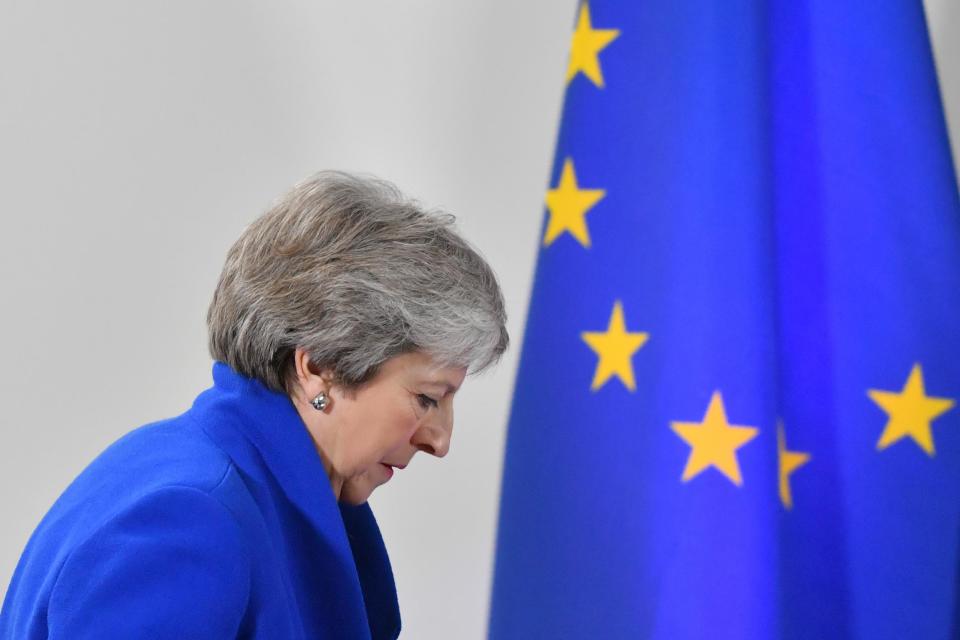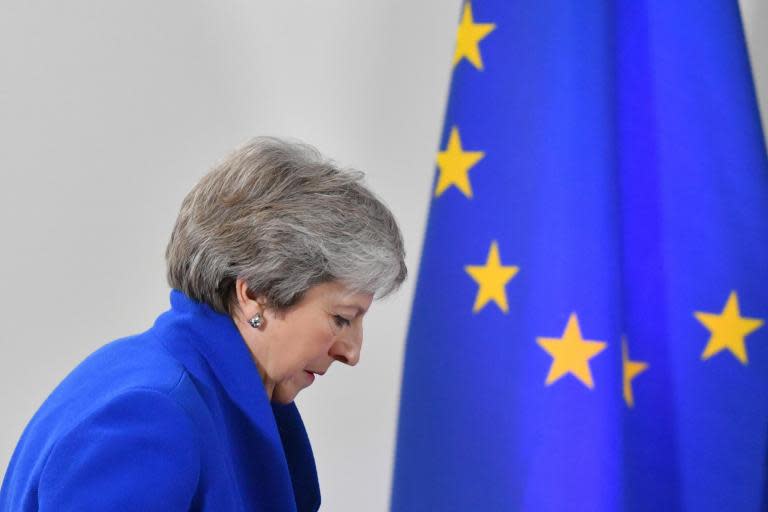Brexit: Theresa May heads to Brussels in hope of breaking deadlock with new plan
Theresa May will fly to Brussels on Wednesday with new plans to change Britain’s EU withdrawal agreement, as she desperately tries to save her Brexit strategy.
The prime minister arrives in Belgium with a stack of legal papers setting out how she believes negotiators can tweak the “Irish backstop” hated by Tory backbenchers.
Ms May also managed to maintain the support of Brexiteers in her own party by promising to make some of their proposals the basis for future discussions on trade with the EU.
Her latest trip to the Belgian capital will see Ms May have a significant meeting with Jean-Claude Juncker, although the European Commission president poured cold water on the idea that it would lead to a major breakthrough at this point.
If there is progress, Ms May could decide to attend a summit at the Egyptian resort of Sharm-el-Sheikh on Sunday, where she would have the chance to win approval for any changes from Angela Merkel and Emmanuel Macron.
That would allow her to show MPs she is making progress in her strategy, before going into a further set of critical votes in the House of Commons next week.
The Independent understands that attorney general Geoffrey Cox has now prepared draft proposals for a legally binding “codicil”, which would be attached to the existing withdrawal agreement, offering additional clarity as to the temporary nature of the Irish backstop.
One senior minister said: “It depends what happens in the next few days, but we will see something now start to take shape.
“It will probably not mean that the major breakthrough comes this week, but it will be enough to show colleagues we are making progress.”
The sticking point to Ms May winning full support from her party for her deal has always been the “backstop”, an arrangement to ensure the Irish border remains open after Brexit, but one that would see the UK potentially locked into an indefinite customs arrangement at the end of 2020 if no new trade deal is signed.
The backstop was sealed in the withdrawal agreement signed off by EU leaders in 2018 and which they have refused to reopen. The potential advantage of the codicil is that it could provide legally-binding additional words to the agreement without needing to reopen it.
But in a reality check ahead of her meeting with Mr Juncker, the Commission president told reporters in Stuttgart: “There is not enough movement for me to be able to assume that it will be a productive discussion. I don’t know what Ms May will tell me tomorrow.”
His deputy chief spokeswoman later quoted him as saying: “I have great respect for Theresa May, for her courage and her assertiveness. We will have friendly talks tomorrow but I don’t expect a breakthrough.”
One cabinet source told The Independent the prime minister should go to Sharm el Sheikh at the weekend, where EU leaders will hold a summit, in order to convince them of her new proposals viability.
She then faces a round of votes in the House of Commons on February 27 when MPs will once again bring forward their own proposals for the UK’s next steps – including some which would delay Brexit as a step towards MPs taking greater control of the process.
A minister said: “What she gets this week has to be enough to take us through the votes on the 27th. She needs to be able to say look we are on the right track, don’t rock the boat now.”
At Tuesday morning’s cabinet, Brexit secretary Stephen Barclay briefed Ms May’s top team on talks in Brussels 24 hours earlier, at which EU chief negotiator Michel Barnier poured cold water on the backbench Malthouse compromise.
It sought to replace the backstop with a free trade agreement along with technological means of keeping the Irish border open – and if that is not acceptable to Brussels, the UK would leave without a deal but only in 2021 after further preparations.
However, the government is set to try and keep authors of the proposal on board by offering to try and put some of its elements in the future “political declaration” which sets out the terms of trade negotiations that will take place during the transition period.
Following a meeting with the PM, Jacob Rees-Mogg and Steve Baker of the Eurosceptic European Research Group said: “The Malthouse Compromise is alive and kicking.”

 Yahoo News
Yahoo News 

